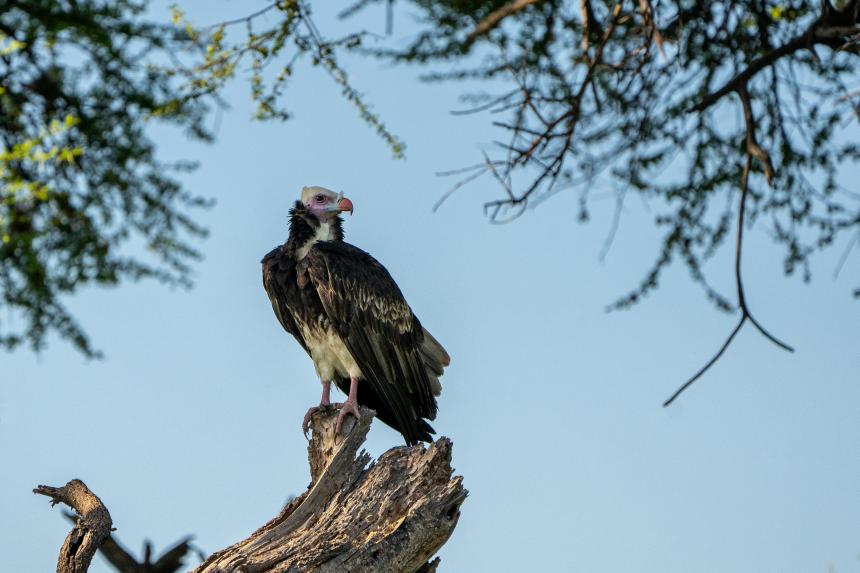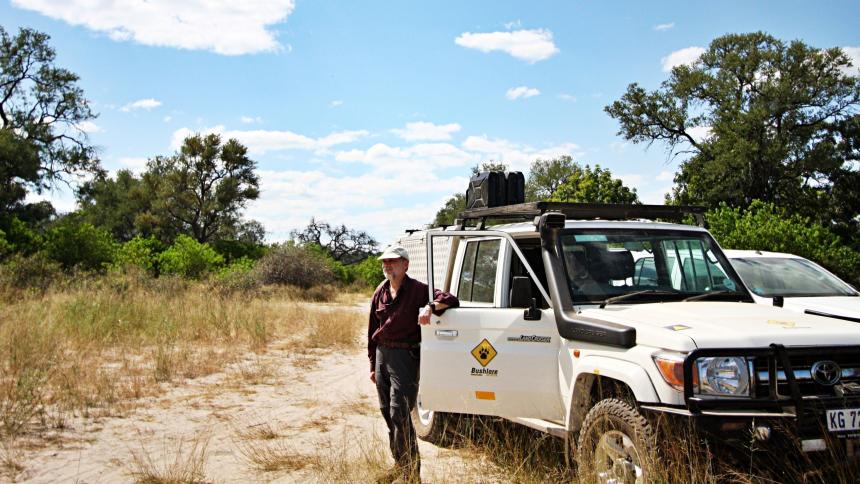In the News

September 13, 2023
It was 5:30 am and I was already sweating when I stepped out of my wooden sleeping hut and into the steamy dawn at Nepal’s Chitwan National Park. It was already 85°F but would reach 105°F before noon. I was up before the sun to complete my summer intern research project - a census of free-roaming domestic dogs in the park’s buffer zone....

Blog
September 07, 2023
Cornell veterinary student Ashley Broderick conducted field surveys and a wildlife health research project on endangered hornbill species to help aid veterinarians who care for hornbills worldwide.

August 23, 2023
Working with primates is something I had avoided for a while. Most of my interest has been in southern Africa, with ungulates like giraffes, antelope, and pachyderms being my main focus. Yet I felt that, following the COVID-19 pandemic, learning more about wild primate health would be vital....

Blog
June 23, 2023
With the help of Dr. Martin Gilbert, Cornell veterinary student Christel-Remy Kuck, DVM '24, lends a hand to struggling vulture populations at VulPro, South Africa through Cornell University College of Veterinary Medicine's Expanding Horizons International Education Program.

May 18, 2023
The Cornell Wildlife Health Center partnered with the student-led Cornell Zoo and Wildlife Society to host Dr. Gladys Kalema-Zikusoka, founder of Conservation Through Public Health, as a special speaker at Cornell University.

News
April 26, 2023
As the son of two veterinarians, Nate LaHue, DVM ’13, was exposed to veterinary medicine his whole life, though his interests never meshed with small animal practice. It was during his undergraduate years that he realized he could combine his interest in veterinary medicine with his passion for wildlife.

January 18, 2023
From Ithaca to the plains of southern Africa, the Cornell Wildlife Health Center is working to heal the natural world. Launched in 2020, the center was formed to unite Cornell’s leading wildlife health professionals under a common mission: to repair the fractured relationship between people and nature.

Video
November 04, 2022
Cornell Wildlife Health Center director Dr. Steve Osofsky takes you on a brief tour of our One Health work around the world.
News
November 03, 2022
If Dr. Benjamin Jakobek decides to write a book, I will be first in line to buy it. As he tells me about some of the projects he’s been a part of, including capturing and collaring muskox in Nunavik and working to transport caribou to a protected environment, he is a reminder to all of us aspiring veterinarians that we will one day have the capability and arguably, the responsibility, to help protect wild animals and places around the world....
April 12, 2022
In November 2019, my classmate, Hannah Padda, DVM ’22, and I were selected by Dr. Robin Radcliffe, a Cornell wildlife veterinarian and associate professor of practice in wildlife and conservation medicine, as two of six participants for his 2020 Engaged Cornell team....
